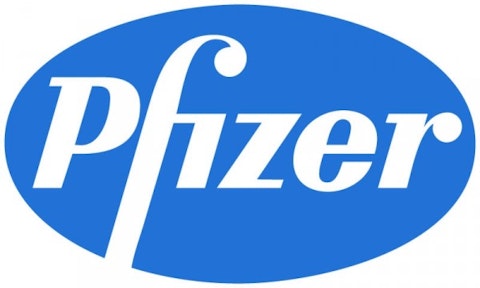The best thing about the stock market is that you can make money in either direction. Historically, stock indexes have tended to trend up over the long term. But when you look at individual stocks, you’ll find plenty that lose money over the long haul. According to hedge fund institution Blackstar Funds, even with dividends included, between 1983 and 2006, 64% of stocks underperformed the Russell 3000, a broad-scope market index.
A large influx of short-sellers shouldn’t be a condemning factor to any company, but it could be a red flag from traders that something may not be as cut-and-dried as it appears. Let’s look at three companies that have seen a rapid increase in the number of shares sold short and see whether traders are blowing smoke or if their worry has some merit.
| Company | Short Increase May 31 to June 14 | Short Shares as a % of Float |
|---|---|---|
| Pfizer Inc. (NYSE:PFE) | 155.7% | 3.1% |
| Thermo Fisher Scientific Inc. (NYSE:TMO) | 783.5% | 9.2% |
| Foot Locker, Inc. (NYSE:FL) | 138.6% | 2.8% |
Source: The Wall Street Journal.
Short-sellers attack like animals
The spinoff of Pfizer Inc. (NYSE:PFE)’s animal health division Zoetis Inc (NYSE:ZTS) has acted as both a positive and negative for the company as a whole. By spinning off Zoetis, Pfizer was able to make it easier for shareholders to understand how each company earns its keep. Conversely, though, Pfizer Inc. (NYSE:PFE)’s human branded-drug segment is facing quite the patent cliff compared to Zoetis, which has seen steady mid-single-digit growth thanks to a surge in households owning pets and treating them like members of the family. With shareholders voting to overwhelmingly tender their Pfizer shares for Zoetis shares, short-sellers must be thinking that Pfizer Inc. (NYSE:PFE)’s growth outlook without Zoetis’ bump is going to be more erratic.
To some extent I do agree with this increase in short interest, in the sense that shareholders should exercise caution with big pharmaceutical names. A high dividend yield and big brand name shouldn’t be enough to lure investors into an automatic investment. Pfizer Inc. (NYSE:PFE), for instance, lost the previous best-selling drug in the world, Lipitor, to patent expiration in late 2011 and stands to lose a few other key products to generic competition in the coming two years.
Then again, Pfizer has put out some very intriguing products lately, which could signify that its product pipeline is far from outdated. None stands out more than revolutionary new blood-thinning drug Eliquis, developed in partnership with Bristol Myers Squibb Co. (NYSE:BMY). Eliquis has blockbuster peak sales potential and essentially mopped the floor with warfarin in practically every aspect. Let’s not also forget about LDL-cholesterol-fighting drug Liptruzet, which combines generic Lipitor with Merck & Co., Inc. (NYSE:MRK)‘s cholesterol absorption inhibitor, Zetia. Individually, these two LDL-reducing agents worked well, but combined as Liptruzet, they reduced LDL cholesterol by 53% to 61%.
Caution is merited with Pfizer shares, but short-sellers’ expectations to the downside may be a bit in the clouds.
Analyzing the short-sellers
The overwhelming boost in the number of short-sellers stems from Thermo Fisher Scientific Inc. (NYSE:TMO) pricing the largest public stock offering all year earlier this month. The $2.2 billion offering comes on the heels of its agreement to purchase rival Life Technologies Corp. (NASDAQ:LIFE) for $13.6 billion. As with Pfizer, there are a lot of mixed emotions about the deal and the share offering.
On one hand, Thermo Fisher Scientific Inc. (NYSE:TMO) put off the dilutive effects of a share offering until after its deal with Life Technologies closes. By using forward-sale agreement, the banks underwriting the offering borrowed shares from other parties. When the deal closes, Thermo Fisher will issue new shares to the bank and take the dilutive hit that short-sellers are positioning for.
There’s also concern that prolonged government austerity measures could drag down funding at hospitals and universities, which are a big component of increased genetic-testing sales. Despite lower genome mapping costs for Life Technologies, a slowdown in Europe and in the U.S. could put a crimp in Thermo Fisher Scientific Inc. (NYSE:TMO)’s bottom line.




